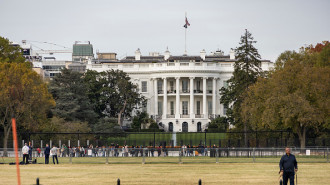Iranian officials consider death penalty for Quran burners in Sweden, Denmark
Brigadier General Ali Fadavi, the deputy of Iran's Islamic Revolutionary Guard Corps (IRGC) commander-in-chief, declared that the perpetrators responsible for burning the Quran in Sweden and Denmark will face severe repercussions.
The burnings occurred in Sweden and Denmark during July, with Iraqi refugees Salwan Momika and Salwan Najem responsible for the incident in Sweden. In Denmark, the far-right Danish Patriots members committed a similar act in front of the Iraqi, Egyptian, and Turkish Embassies in Copenhagen.
The incidents involving public trampling and setting Muslims' holy book alight sparked outrage across Islamic nations.
Brigadier General Fadavi's warning marks the first time a high-ranking military official in an Islamic country openly threatened responses against those involved in such acts.
"We have a duty to respond when the most sacred book in the world is offended. We must punish the individuals and the countries involved in such insult, and we will," he said in an interview on 26 July.
Fadavi did not provide additional details regarding the punishment that the IRGC contemplated for individuals who burned the Quran. However, other senior IRGC members hinted at the possibility of imposing the death penalty for such an offence.
A prominent IRGC official, Ali Mohammadisirat, who represents Iran's Supreme Leader at the Quds Force, suggested that the life of Salwan Momika could be at risk. The Quds Force is a branch of the IRGC responsible for extraterritorial operations.
Citing Ayatollah Ali Khamenei's call for the "most severe punishment", he warned: "The person who offends the Prophet and the holy Quran would be sentenced to death, as demanded by the Supreme Leader".
"If Sweden does not hand over this criminal, he will live a life without safety and comfort, similar to Salman Rushdie," he added.
Rushdie is the Indian-born British-American novelist who authored "The Satanic Verses" in 1988. After Ayatollah Ruhollah Khomeini, Iran's first Supreme Leader issued a fatwa demanding Rushdie's death, the author was forced to live in hiding for years.
The threats persisted until August 2022, when Rushdie was attacked and seriously injured at Chautauqua Institution in New York. He lost sight in one eye and the use of one hand, after he was stabbed multiple times.
Iran's foreign ministry has also responded to the Quran-burning incidents by taking diplomatic measures. The country refrained from sending a new ambassador to Sweden and has withheld acceptance of Sweden's newly appointed ambassador to Tehran.
On 21 July, Iran's foreign minister Hossein Amir Abdollahian said that Iran had urged Swedish authorities to apprehend and prosecute the individual responsible for the incidents.
"In a phone call with Sweden's foreign minister, I stressed that just issuing statements is not enough and that the individual who offended the law must be arrested and tried," he said.





 Follow the Middle East's top stories in English at The New Arab on Google News
Follow the Middle East's top stories in English at The New Arab on Google News


